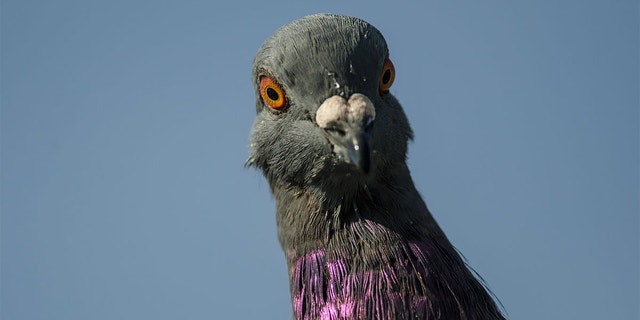

 9
9






- Tim's Homestead Journal - Purchase a copy of Building a Better World in Your Backyard - Purchase 6 Decks of Permaculture Cards -
- Purchase 12x Decks of Permaculture Cards - Purchase a copy of the SKIP Book - Purchase 12x copies of Building a Better World in your Backyard
 6
6




All true wealth is biological.
Lois McMaster Bujold
 3
3




Life's too short, eat desert first! [Source of quote unknown]
You have to be warped to weave [ditto!]
 9
9




Invasive plants are Earth's way of insisting we notice her medicines. Stephen Herrod Buhner
Everyone learns what works by learning what doesn't work. Stephen Herrod Buhner
 5
5





 9
9




 10
10












 6
6




Joseph Lofthouse wrote:My local feed store sells "pigeon food". It contains a mix of seeds designed to please pigeons. I would start by scattering it on the ground in an open area. They may find it and start making regular visits.
* Follow your curiosity , Do what you Love *
Permaculture page on Simperi website | Guides to Intuitive Living
 5
5




Timothy Norton wrote:I have read stories about folks befriending their local murder of crows and I realize that I have a few pigeons that live in the eaves of nearby houses. Is there a potential to befriend them? Does anyone know?
I am fond of pigeons but haven't started learning about them in earnest quite yet. Are domestic pigeons fundamentally different than their wild compatriates?
Let me know what you think and thank you in advance. :)
[/img]
$10.00 is a donation. $1,000 is an investment, $1,000,000 is a purchase.
 13
13




 4
4




 3
3




Athenas Gardens wrote:The chicks are yellow like little ducks! A pigeon made a nest in a flower pot on my balcony in a fairly urban area. She sat on the nest for a while until two little duckling pigeons hatched!
$10.00 is a donation. $1,000 is an investment, $1,000,000 is a purchase.
 1
1




Cécile Stelzer Johnson wrote:
Athenas Gardens wrote:The chicks are yellow like little ducks! A pigeon made a nest in a flower pot on my balcony in a fairly urban area. She sat on the nest for a while until two little duckling pigeons hatched!
Lucky you! She must have been there for about 18 days, which is the incubation for pigeons. The down is yellow at first, and the big buggy eyes are probably still closed. The squabs [that's the term normally used for baby pigeons] are quite helpless at this stage.
I hope they don't get disturbed at all. Squabs first have to reach almost adult size before they dare to take their first flight, around 6 weeks.
You may get a chance at developing a friendship [if you have a lot of patience].
 2
2




Athenas Gardens wrote:
Cécile Stelzer Johnson wrote:
Athenas Gardens wrote:The chicks are yellow like little ducks! A pigeon made a nest in a flower pot on my balcony in a fairly urban area. She sat on the nest for a while until two little duckling pigeons hatched!
Lucky you! She must have been there for about 18 days, which is the incubation for pigeons. The down is yellow at first, and the big buggy eyes are probably still closed. The squabs [that's the term normally used for baby pigeons] are quite helpless at this stage.
I hope they don't get disturbed at all. Squabs first have to reach almost adult size before they dare to take their first flight, around 6 weeks.
You may get a chance at developing a friendship [if you have a lot of patience].
Uhhh it was a 😢 story. Balcony faced south.
$10.00 is a donation. $1,000 is an investment, $1,000,000 is a purchase.












 8
8




- Tim's Homestead Journal - Purchase a copy of Building a Better World in Your Backyard - Purchase 6 Decks of Permaculture Cards -
- Purchase 12x Decks of Permaculture Cards - Purchase a copy of the SKIP Book - Purchase 12x copies of Building a Better World in your Backyard












 5
5




- Tim's Homestead Journal - Purchase a copy of Building a Better World in Your Backyard - Purchase 6 Decks of Permaculture Cards -
- Purchase 12x Decks of Permaculture Cards - Purchase a copy of the SKIP Book - Purchase 12x copies of Building a Better World in your Backyard












 6
6




- Tim's Homestead Journal - Purchase a copy of Building a Better World in Your Backyard - Purchase 6 Decks of Permaculture Cards -
- Purchase 12x Decks of Permaculture Cards - Purchase a copy of the SKIP Book - Purchase 12x copies of Building a Better World in your Backyard
 7
7




Timothy Norton wrote:We have reached up to nine visitors. They are spooked off the ground if I come out of the house but wait up on the roof ridge for me to disappear so they can return to grazing.
I've finally managed to get some control over my lawn. It was looking like a hay field after all the rain we have received. A fresh cut followed by some spread seed caught their attention.
$10.00 is a donation. $1,000 is an investment, $1,000,000 is a purchase.












 3
3




- Tim's Homestead Journal - Purchase a copy of Building a Better World in Your Backyard - Purchase 6 Decks of Permaculture Cards -
- Purchase 12x Decks of Permaculture Cards - Purchase a copy of the SKIP Book - Purchase 12x copies of Building a Better World in your Backyard
 6
6




Timothy Norton wrote:We have now reached a record total of fifteen visiting pigeons at one time .
I do believe that there is a 'core' element of visitors that are around ten in number that have created a routine of pecking over my backyard. These birds will not at least tolerate my presence, at a distance, with a few even letting me come within fifteen feet or so. I do believe we are building trust. When my wife and I are outside doing work it isn't uncommon to see a bunch of pigeons on the roofline of the house watching us.
I find it interesting that after everything calms down and some time has passed (ten minutes or so) that the first pigeon will descend down and check out the area. A few more minutes will pass and then a second pigeon will join the first to peck around. One after another they will fly down until they all are on the ground but never at the same time. When something is spooky however, they all take off in a big spectacle. They are very cautious birds.
$10.00 is a donation. $1,000 is an investment, $1,000,000 is a purchase.
 4
4




 3
3




Timothy Norton wrote:We have now reached a record total of fifteen visiting pigeons at one time .

 6
6




 2
2




 2
2





| I agree. Here's the link: http://stoves2.com |



